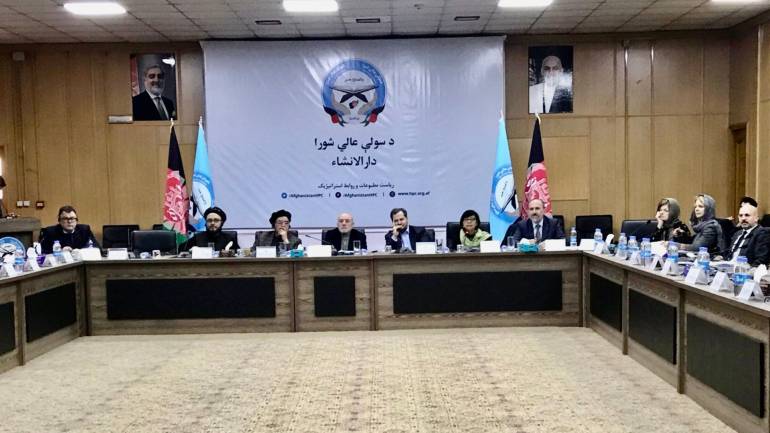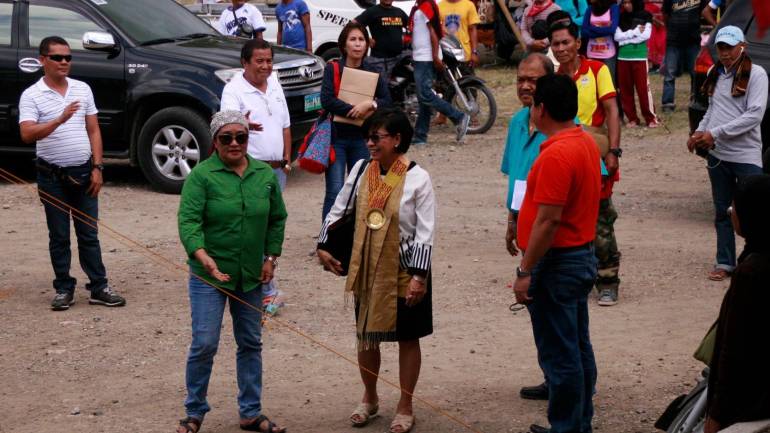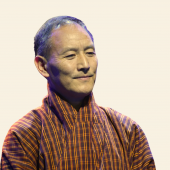Women Peacebuilders Shifting Paradigm
After centuries, women locally and globally are actively shifting the paradigms for justice, change, and lasting peace, says Miriam Coronel-Ferrer, on Wednesday, November 8, during the Ramon Magsaysay (RM) Transformative Leadership Institute lecture series at the RM Center in Manila via the Zoom webinar platform.
“I am referring to the growing movement of women who believe in their power to be involved and become agents of change. It had not been easy for many women to say, with confidence, “I have the power!”, said Coronel-Ferrer, a peace negotiator in the Philippines, whose political student activism started in the late 1970s, when she joined the resistance against martial rule.
After the 1986 People Power Revolution, Coronel-Ferrer felt the need to find peaceful resolutions to the many armed conflicts that continued to divide the country.
As part of its commitment to United Nations (UN) Security Council Resolution 1325, the government of the Philippines eventually adopted Coronel-Ferrer's first National Action Plan on Women, Peace, and Security (WPS), which she had initiated with other female peacebuilders.
She said the shift in the peacebuilding paradigm is because of “women’s lived realities,” like there is violence in the streets, but there is also violence at home; there are the ex-fighters, mostly men, but there are also widows and orphans; guns protect, but women plead; the same kind of guns will kill the sons; women are bosses of the house; they can also be the boss at the workplace and lead outside of it.
“Having the power is not about oppressing men, nor is it about behaving like men. Having power is not about ruling over others. We say that power is located in different spaces; it is not finite; it can go around. It can be shared and expanded. Power is for nurturing, not for killing. To protect, not to abuse. To do, not to undo. Power is for meaningful participation. Collaborative decision-making”, said Coronel-Ferrer.
She cited an evening when cohorts from various areas of Bangsamoro attended the UN Women-Philippines advanced training on WPS.
“It was during the karaoke night that I saw the power and joy of collective singing. Several microphones passed on from one to another, giving all of them a chance to render a line, sometimes solo, sometimes as twosomes, sometimes as quartets... Sharing several microphones in this manner, contributing to the outcome, and owning the song is what collective power-sharing is all about,” said Coronel-Ferrer.
In the latter part of 2012, she became the chairperson for the Philippine government’s peace panel tasked with negotiating with the Moro Islamic Liberation Front (MILF). The Philippine government and MILF signed the Comprehensive Agreement on the Bangsamoro in 2014.
“There is no perfect agreement, but we make it more imperfect by leaving women out of the process,” said Coronel-Ferrer.
In 2020, Coronel-Ferrer co-founded the Southeast Asian Women Peace Mediators, a pioneering group of women engaged in convening safe spaces for dialogues and supporting mediation initiatives in countries like Myanmar and Afghanistan.
And what to do in a world in conflict now where wars are setting back painstaking efforts at building democracy, promoting human rights, and settling armed conflicts?
“Fortunately, there are many among us, men and women, who do not tire in the building every day, every person, everywhere peace,” said Coronel-Ferrer.
She mentioned organizations in the Philippines like the Center for Peace Education of Miriam College, run by Loreta Castro and Jasmin Nario-Galace, that have instituted pieces of training on peace, tolerance, and conflict resolution.
“Like those in Basilan, creatively changing the mindsets of the upcoming generation through campaigns like exchanging toy guns with bicycles Like the original movers and thinkers of the Philippine peace movement like Ging Deles, Ed Garcia, and Soliman Santos, Jr., to name a few.“
“Like those involved in mediation and peacebuilding, quietly engaging with key actors, like my colleagues in the Southeast Asian Women Peace Mediators,"
“Because they don’t give up, because they inspire others to take up the cudgels for peace and justice, the greatness of their collective spirit shall prevail,” said Coronel-Ferrer. - Madonna T. Virola (MTV)
Radio Veritas Asia (RVA), a media platform of the Catholic Church, aims to share Christ. RVA started in 1969 as a continental Catholic radio station to serve Asian countries in their respective local language, thus earning the tag “the Voice of Asian Christianity.” Responding to the emerging context, RVA embraced media platforms to connect with the global Asian audience via its 21 language websites and various social media platforms.


















